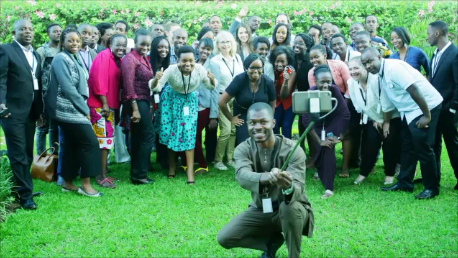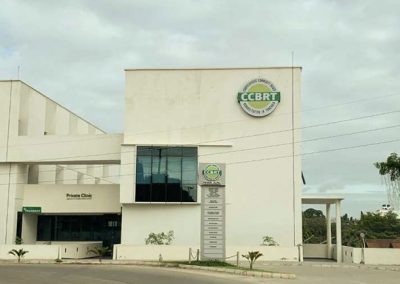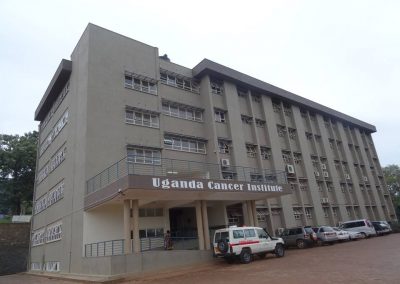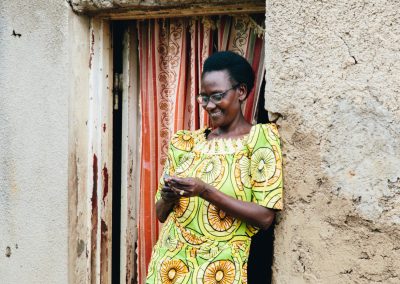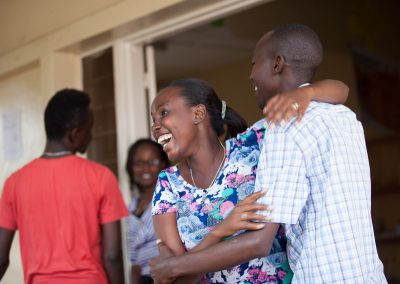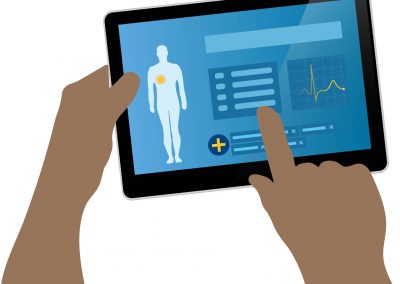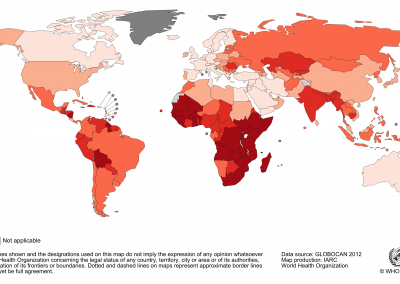ICT for Health and Wellbeing

Access to services
When health information is accessible in concise and simple format, in the palm of your hand through a mobile phone or at a data-lab in a trusted community centre or radio station, it can assist and encourage people to make informed decisions about their health. Digital devices can enable the detection of ill-health earlier, and perhaps most importantly, help to signpost services in local community that can provide quality care, advice and treatment.
SPIDER’s experience shows that a projects benefits greatly from:
- Local content with relevant representation
- Combining entertainment and creative learning with information (radio, games etc)
- Technology that cuts costs and evades physical barriers to outreach efforts and makes possible peer-to-peer support
Networking & Collaborations
SPIDER’s experience in connecting key organisations, companies, authorities, advocates and researchers has led us to develop an extensive network method, which we make use of in the Health & Wellbeing programme.
- Health Systems approach:
Recognising that the delivery of quality health services is reliant on many different actors; health workers, funders, technology, insurance companies, policy and law makers and patient group representatives among other - Connecting expertise:
SPIDER’s ICT4Health Network connects different expertise to complement and enhance different projects, enable professional development and make possible peer-to-peer learning - Pooling of resources:
Making use of and sharing methodology, equipment, knowledge or specialist skills across network membership to utilise technology for more efficient and effective health service delivery and for the attainment of SDG 3 & 17 (Agenda 2030)
Use and add to health data
The Health Programme is designed to record, encourage and enable people in key communities to actively feed into health data, statistics, policy and strategy on health. This can happen through the development of innovative technology assisting front line health workers to carry out tasks more efficiently, inter-operable systems which link different health projects and community owned programmes are scaled to enable technology to work for health.
- “Nothing about us, without us”:
SPIDER actively works with the Digital Investment Principles, among which the need to develop solutions with the end user is central. Whether the ICT is to be used by clinicians, or community health workers, their involvement at early stage of ICT development is necessary. - Evidence based interventions.
Programme implementation incorporates the aspect of proper research to establish need, monitor progress and evaluate results. - People focused ICT use:
SPIDER works with ICT in a development context and therefore it is not the introduction of mobile phones or digital platforms that is the solution to any challenge, but how human beings use technology to better meet communities’ needs and improved health.
Get connected
SPIDER is also part of the Global Digital Interoperability Group led by WHO, USAID, and PATH International
ICT4Health & Wellbeing Network
SPIDER’s ICT4Health & Wellbeing Network consists of project partners and meets twice a year.
Network partners collaborate and share resources. They inform and update each other on their respective organisation’s progress and coordinate sustainability plans.
Read more about our partners and see where we are supporting Digital Health efforts. CLICK HERE
ICT4Social innovation Network
The Pan-African ICT4 Social Innovation Network is co-founded by SPIDER and our partner iHub Ltd and unites Social Innovation through ICT under Agenda 2030 goals for education, health and rights.
Network members represent Civil Society Organisations, Private and Public organisations, Researchers, Technical engineers and software developers who in an innovative way use ICT for social good.
The Network unites actors, highlights gaps and opportunities for social innovation through ICT and is organised in sub-regional forums where events, workshops and training opportunities are organised by members.
Let’s collaborate!
ICT4D/ICT4Health insights
Project/programme collaboration
Networks
Resources
If you have anything you think we should share, please contact us.


